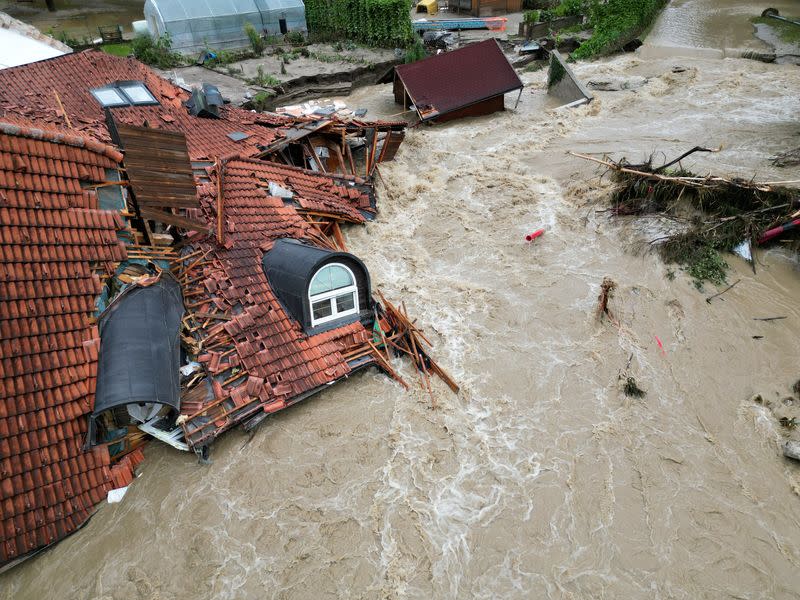'Nature fights back': Slovenia's worst floods kill six

By Fedja Grulovic
PREVALJE, Slovenia (Reuters) - Slovenia's worst floods on record have killed at least six people, swept away homes and clogged villages with debris, authorities and media said on Monday.
Heavy rains have lashed about two thirds of the Alpine nation for days, destroying buildings and bridges to cause an estimated 500 million euros ($549 million) of damage.
"The material damage is not so important. The important thing is we saved our lives on time," said Drago Hudofisk, in the village of Prevalje near the border with Austria, watching his house vanish in mud at the weekend.
"We all know how it is, it's happening in the whole world," added Hudofisk, whose eight-member family home was swept away by a river. "You know, nature fights back against everything (we do). Water has the power, it destroys everything."
Thousands of people have been evacuated from homes around northwest and central Slovenia, with the army, firefighters and rescuers trying to free others and clear streets.
Since Friday, six people have died from the floods, according to state news agency STA citing police, including two Dutch men believed struck by lightning and four Slovenians also killed or drowned in the chaos.
The Slovenian Environment Agency said floods were starting to recede on Monday, but some areas were still cut off. Residents of villages along the river Mura had to be evacuated on Sunday night after part of the levee collapsed.
Authorities in the ski resort Kranj warned that damaged sewage pipes risked polluting the Sava river which also flows through Croatia, Bosnia and Serbia.
The European Union offered heavy machinery and engineering units. Slovenia also requested helicopters, soldiers and prefabricated bridges from military alliance NATO.
Croatia and Hungary have provided helicopters and Germany sent a civil protection team.
($1 = 0.9112 euros)
(Reporting by Fedja Grulovic; Additional reporting by Daria Sito-Sucic in Sarajevo; Editing by Andrew Cawthorne)

